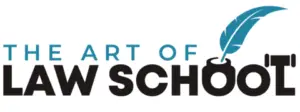OCI has been one of the most nerve-wracking, but rewarding experiences thus far in my law school journey. It feels a lot like speed-dating, except for the fact that it’s your career on the line instead of a potential significant other. In this article I will breakdown each step of the OCI process, and give you some tips on getting through it.
Jump Ahead To:
Deciphering OCI: Turning Career Speed Dating into Opportunities

Speed dating for a career nay be the best way to describe the OCI process, basically law firms send firm reps out to a school’s campus or to a nearby hotel for a series of interviews. These reps usually do more than twenty interviews in one day with law students from your school. Later on, some students are selected for “call-backs” which are extremely exciting for a law student but they basically entail an hours long interview with a number of associates and partners at the firm’s office. If you successively navigate the numerous interviews at the callback stage you will be given an offer to return to the firm as a “summer associate”.
How Initial Interviews Shape Your OCI Journey
Every law school has a different OCI schedule but most will be late in the summer. Many students frequently end up doing callback interviews during the early part of the fall semester but some are able to get them out of the way before classes start.
One thing every law student find kind of weird is that you are interviewing at the end of your 1L summer for jobs that you will not start until 2L summer.
The most common way for law schools to do OCI is that the law school sets up an online portal where the students have a maximum amount of “bids” that they can submit to law firm. The bids typically include your resume and transcript, but firms frequently ask for cover letters and I have seen some firms request references and even undergraduate transcripts (not cool).
My school releases the average GPA that a law firm accepts for an initial interview and the number of applicants-initial interview ratio to give students a good idea of the competitiveness of each firm. This can help you significantly if there are a law of firms accepting bids because it will maximize your chances of obtaining as many initial interviews as possible.
Deciding Your Post-Law School Path: Why OCI Might Be for You
Your career interests can greatly effect whether or not you even want to participate in OCI. If you are aiming for a Biglaw summer associate job then your biggest and best opportunity is likely to be OCI. Most big firms do most of their recruiting through the OCI process.
If you are aiming to work in government, boutique firm or a small firm than you do not need to worry about OCI as much. When I went through my school’s OCI program there were very few government offices or small firms seeking bids. Most legal employers outside of Biglaw do their intern recruiting during the semester.
The Crucial Role of Grades in Securing OCI Interviews
How do law firms determine who gets screener interviews and who does not? The biggest and most important component is grades.
Remember what every upper-class law student and lawyer tells you about grades? They are by far most important 1L year, less important 2L year and least important 3L year.
They were all thinking about OCI when they told you grades are most important 1L year. It’s true that OCI can feel very much like a feast or starve experience. The students with the top 1L grades at high ranked schools will typically be inundated with interviews whereas below average grade students will have significantly fewer options.
The reality of OCI is that your chances of getting a job and the type of job you get through this program depends almost entirely on the law school you attend and the grades you come out of 1L year with.
Demystifying Law School Rankings and Their Impact on OCI Success
It’s true that T14 law schools overwhelmingly have the best odds for students seeking Biglaw employment. However it would be false to say that T14 students are the only ones who have the opportunity for Biglaw employment. I attend a T30 school and we have a very robust OCI program.
A student at a T14 school with good grades has an excellent shot at a Biglaw job (may vary by the economy). A student with below average grades might still get one but it will depend on where in the T14 the student attends and how much hustle the student puts in.
Anything below T14 the opportunities for Biglaw employment fall as the school’s ranking goes down. There are some exceptions but overall it becomes considerably more difficult to obtain Biglaw employment. For top students- you might have a shot, apply like crazy. For median and below students- apply like crazy because there are plenty of opportunities out there, Biglaw however will likely be out of reach.
Strategies for Effective OCI Bidding

Regardless of your grades and school ranking, if you have OCI at your school it is an excellent opportunity to potentially garner employment for your 2L summer!
Your goal is to maximize your bids with safety, target and reach schools. If your school gives you GPA statistics on each firm use them! Preferably, you should be applying to mostly safety and target schools with a few reach school. But for every reach school you apply to, if they request a cover letter/optional cover letter you better be ready to tell that firm exactly why you want to work there!
My experience with OCI screener interviews is that I applied to mostly safety and target firm with a few well renowned litigation firms as reaches. I was really surprised to find out the number of supposedly “safety” firms that were well below my GPA that rejected me. I checked if those same firms required or requested cover letters and figured my cover letter was just inadequate. I discovered that none of the safety firms that rejected me even requested cover letters! The moral of the story is one of two things: either 1) firms don’t always like giving screener interviews to a student with grades well above their mean because they assume the student would not accept a job with the firm or 2) the OCI process can sometime be extremely subjective and not really based on grades. It’s probably a little of both.
Mastering OCI Interviews: Tips to Stand Out and Succeed

The lead-up to the first day of OCI interviews is extremely stressful and time-consuming. Basically at my school we received notifications through email of all the firms that had invited us for a screener interview a week or two in advance. Students then had the opportunity to accept the interviews and schedule the times for each interview.
The school notified all the rising 2Ls at the same time so there was a rush to get interviews scheduled as soon as possible. I of course forgot to sign up until two hours after notifications and by then most of the slots were filled. Your school likely has the same process, therefore if you have a strong preference for certain times or you only have two or three interviews one day and you don’t want them to be spaced over nine hours, you should try your best to sign up for interview slots as soon as possible.
Interviews typically run from 9AM to 530 PM and they are 20 minutes long. They suck, I am not a big fan of interviewing in general but everybody has to do it so lets talk about some tips and dos & don’ts.
Harnessing Practice Interviews for OCI
If you know you have interviews and you know you are bad at interviewing get in some practice interviews!!! Most schools have a career service office that offers practice interviews for students, do them! Interview with a friend of yours that is A) intelligent and B) can take things seriously. Use practice questions from your career services office, vault also has common interview questions.
If you don’t already do this you need to learn it now; 1) you have to look the interviewer in the eyes when you speak, people hate it when you look at the floor, ceiling or anywhere else really and 2) if you don’t have a firm handshake yet, get one. Clammy, “fish” handshakes are no good.
Doing Your Homework: The Importance of Researching Law Firms for OCI
For God’s sake research the firm you are interviewing with. The “so why do you want to work here?” question still gives me chills. All of the big firms do pretty much the exact same thing, unless of course you are a rising 2L that knows exactly what you want to do (doubtful). I had no idea which firm I wanted to work for until I came back for callback interviews.
Unfortunately, big firms don’t seem to care that they all pretty much look the same to a rising 2L so they ask that question. It is your job to be prepared, find some interesting things about the firm that set them apart in your mind and be prepared to use that information!
The Power of a Strong Resume: Keeping It Relevant for OCI
Everyone has a resume with stuff that is five years or older on it. If you are like me you can barely remember what you did last week, much less what you did at an internship three years ago in undergrad. But guess what? If it is on the resume it is fair game! One guy asked me about my internship experience at a public defender’s office during my junior year in undergrad. It definitely was not one of my shining moments trying to figure out a lame explanation of what I did at my internship.
The Art of Asking Questions during OCI Interviews
At the end of every single one of my screener interviews, the attorney always asked me “do you have any questions for us?” ALWAYS SAY YES. I would like to advise you to ask questions specifically tailored to that firm, but I talked to several of my friends after OCI was over and they only ever asked generic questions and it worked out wonderfully.
A specifically tailored question would be: I noticed you worked on XYZ project, can you tell me about some of the challenges with that?
A general question would be: What sort of feedback & mentoring opportunities are available to summer associates?
I still recommend tailoring some questions to the interviewer/firm but if you can’t find anything go with generics!
The more you can show that you are genuinely interested in the firm and not just viewing it as another stop in your OCI journey, the better the question. Check out what big cases the firm has been working on recently, one interesting question could be “I noticed the firm recently took on a landmark pro bono environmental case. How does the firm prioritize such pro bono work, and are there opportunities for younger associates to get involved?”
Typical Questions to Expect at Screener Interviews
I went through more than thirty screener interviews because I did two OCIs so I figured that a few of the questions I was commonly asked might help you out.
1) Tell me about yourself/tell me about your journey to law school?
Jesus Christ by the end of the day I honestly was not sure if I could ever start a conversation with someone again without telling them about my career up until law school. More than 80% of the firms I interviewed with asked me this question. It’s a “softball” and you should be well-prepared to have a canned answer (but not to the point where it sounds overly-rehearsed).
2) What did you do over the summer/tell me about your experience at …
This should also be an easy one since you are likely just finishing up your internship. Just be prepared with one or two big things/papers/memos/briefs you did over the summer.
3) What was your favorite class?
Hard to mess up here, just please don’t tell them “I loved them all equally” or “They all sucked”.
4) Why this firm?
Maybe half the firms at my screeners asked this, just be prepared.
Making a Lasting Impression
On-campus interviews are not just about answering the questions thrown at you, but about making a memorable connection with your interviewer. Here are some pointers to ensure you stand out in the sea of applicants:
- Personal Anecdotes: While interviewers want to hear about your professional achievements, sprinkling in personal anecdotes can make the conversation memorable. For instance, if asked about teamwork, narrate a story from a team project, perhaps something outside of your coursework, to demonstrate your teamwork skills. A story from your mock trial or moot court preparation can come in handy for these situations!
- Active Listening: This might sound basic, but it’s surprising how many students get nervous and fail to listen attentively. If your interviewer mentions something in passing, circle back to it later in the conversation. It demonstrates that you’re attentive and engaged.
- Follow Up: A day or two after your interview, send a personalized thank-you note to your interviewer. Reference a part of your conversation that stood out. It serves as a reminder of who you are and your genuine interest in the firm.
- Stay Updated: Legal landscapes are continually shifting. Ensure you’re up-to-date with recent landmark cases, especially those that the firm you’re interviewing with might have been involved in. Discussing such cases shows your proactiveness and enthusiasm for the legal field.
Navigating Post-Screener Steps: Callbacks and Beyond

If you do not receive a callback that’s okay there are plenty of other job opportunities throughout the year before 2L summer. The vast majority of law students do not get their jobs from OCI.
If you did get a callback, congratulations! You have a ton of preparation work to do though. The typical callback interview can last anywhere from 2 hours to half a day. Sometimes the callback interview will culminate in lunch with a few of the associates.
Callbacks are marathons, you need to do lots of preparation and get lots of sleep before these because they are exhausting. Each callback interview I had was basically a series of screeners with 5-7 attorneys in varying practices at the firm.
Conclusion
I hope this article helped you with preparing for OCI, my final note on the topic is to be prepared and take it seriously but do not be distraught if you do not get a job out of OCI because there are lots of other opportunities right around the corner!
